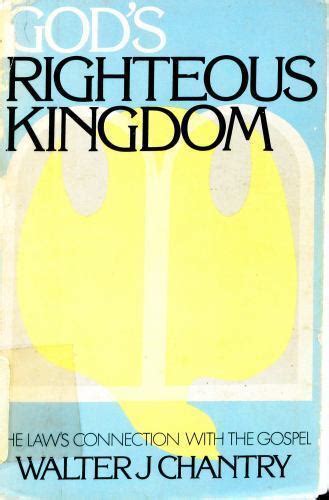A Quote by Aiden Wilson Tozer
Most of the world's great souls have been lonely. Loneliness seems to be one price the saint must pay for his saintliness... Always remember: you cannot carry a cross in company. Though a man were surrounded by a vast crowd, his cross is his alone and his carrying of it marks him as a man apart. Society has turned against him; otherwise he would have no cross. No one is a friend to the man with a cross.
Related Quotes
The man with a cross no longer controls his destiny; he lost control when he picked up his cross. That cross immediately became to him an all-absorbing interest, an overwhelming interference. No matter what he may desire to do, there is but one thing he can do; that is, move on toward the place of crucifixion.
If God wishes to be born as man and to unite mankind in the fellowship of the Holy Ghost, He suffers the terrible torment of having to bear the world in its reality. It is a crux; indeed, He Himself is His own cross. The world is God's suffering, and every individual human being who wishes even to approach his own wholeness knows very well that this means bearing his own cross. But the eternal promise for him who bears his own cross is the Paraclete.
In the Cross is salvation; in the Cross is life; in the Cross is protection against our enemies; in the Cross is infusion of heavenly sweetness; in the Cross is strength of mind; in the Cross is joy of spirit; in the Cross is excellence of virtue; in the Cross is perfection of holiness. There is no salvation of soul, nor hope of eternal life, save in the Cross.
The only cross in all of history that was turned into an altar was the cross on which Jesus Christ died. It was a Roman cross. They nailed Him on it, and God, in His majesty and mystery, turned it into an altar. The Lamb who was dying in the mystery and wonder of God was turned into the Priest who offered Himself. No one else was a worthy offering.
Nowadays this is the way everyone loves himself; people wish to live with God in consolations and repose, in wealth and power, and to share the fruition of his glory. We all indeed wish to be God with God, but God knows there are few of us who want to live as men with his Humanity, or want to carry his cross with him, or want to hang on the cross with him and pay humanity's debt to the full.
But they all stood beneath the cross, enemies and believers, doubters and cowards, revilers and devoted followers. His prayer, in that hour, and his forgiveness, was meant for them all, and for all their sins. The mercy and love of God are at work even in the midst of his enemies. It is the same Jesus Christ, who of his grace calls us to follow him, and whose grace saves the murderer who mocks him on the cross in his last hour.
But we are gravely mistaken to think that Christianity protects us from the pain and agony of mortal existence. Christianity has always insisted that the cross we bear precedes the crown we wear. To be a Christian, one must take up his cross, with all of its difficulties and agonizing and tragedy-packed content, and carry it until that very cross leaves its marks upon us and redeems us to that more excellent way which comes only through suffering.
[to Jesus] You did not come down from the cross when they shouted to you, mocking and reviling you: "Come down from the cross and we will believe that it is you." You did not come down because, again, you did not want to enslave man by a miracle and thirsted for faith that is free, not miraculous...I swear, man is created weaker and baser than you thought him! How, how can he ever accomplish the same things as you? ...Respecting him less, you would have demanded less of him, and that would be closer to love, for his burden would be lighter.
Remember that each of us has his own cross. The Golgotha of this cross is our heart: it is being lifted or implanted through a zealous determination to live according to the Spirit of God. Just as salvation of the world is by the Cross of God, so our salvation is by our crucifixion on our own cross.
Jesus has many who love the kingdom of God, but few who bear a cross. He has many who desire His comfort, but few who desire His suffering. All want to rejoice with him, but few are willing to suffer for Him. He writes; there are many who admire his miracles, but there are few who follow in the humiliation of the cross.
Jesus says that every Christian has his own cross waiting for him, a cross destined and appointed by God. Each must endure his allotted share of suffering and rejection. But each has a different share: some God deems worthy of the highest form of suffering, and gives them the grace of martyrdom, while others he does not allow to be tempted above that which they are able to bear. But it is the one and the same cross in every case.
There's a place in the world for the angry young man
With his working class ties and his radical plans
He refuses to bend, he refuses to crawl
He's always at home with his back to the wall
And he's proud of his scars and the battles he's lost
And he struggles and bleeds as he hangs on the cross
And he likes to be known as the angry young man.
The believer's cross is no longer any and every kind of suffering, sickness, or tension, the bearing of which is demanded. The believer's cross must be, like his Lord's, the price of his social nonconformity. It is not, like sickness or catastrophe, an inexplicable, unpredictable suffering; it is the end of the path freely chosen after counting the cost. It is not, like Luther's or Thomas Muntzer's or Zinzendorf's or Kierkegaard's cross, an inward wrestling of the sensitive soul with self and sin; it is the social reality of representing in an unwilling world the Order to come.


































